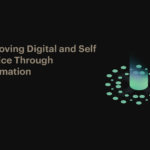
post
March 31, 2020
Psychology Today | The Adaptive Third
In times of immense change, there is usually an "adaptive third."
The COVID-19 crisis has people in a state flux, if not anxiousness and panic. You may perceive some trends in how different people are reacting to the current situation.
According to Psychology Today, research shows that in times of immense change, there is usually an ‘adaptive third’.
1/3 of the population exhibits what has been noted as “existential courage” and rather than trying to bounce back, they took a step forward.
This pattern proved to be true in a large study conducted by Salvatore Maddi and the University of Chichago. In the mid-1970’s, Maddi and his team conducted the study on employees of the Illinois Bell phone company during the Ma Bell breakup, a organization-wide shift that caused about 50% of employees to be laid off. Maddi’s team kept tabs on the employees, and noticed that amidst divorces, cancers, suicides, kidney failures, heart attacks, alcoholism, and other disastrous happenings, about one third of the employees didn’t just survive – they thrived.
“What separated the adaptive third from everyone else is surprisingly simple: While everyone else tried to bounce back, the adaptive third took a step forward. They exhibited what Maddi calls ‘existential courage.'”
Over the past three decades, study after study shows that there is remarkably a consistent one in three people who exhibit this existential courage. This is especially relevant in the context of today’s CVOD-19 crisis.
“The people in the adaptive third were different. They also asked themselves what the change meant. But rather than trying to make sense of what they had done to deserve this experience, they tried to make sense of what they could do now that it had occurred.
That might be the single greatest lesson of adaptation. Instead of asking why bad things happen to good people, adaptive people turn that timeless riddle on its head and ask what can good people do when bad things happen?”
Read the full article from Psychology Today.
Using digital tools can help companies come out stronger through times of change by allowing them to quickly delegate and communicate. OneReach.ai has seen an influx of companies aggressively stepping up their employment of digital tools. See our Crisis Tools page to learn about how we have responded to the companies asking for help. Automation of tasks and communications could help your company respond better in times of crisis.
Stay up to date
Latest Articles

OneReach.ai Named a Leader in the IDC MarketScape for Conversational AI Software 2023
December 18, 2023



